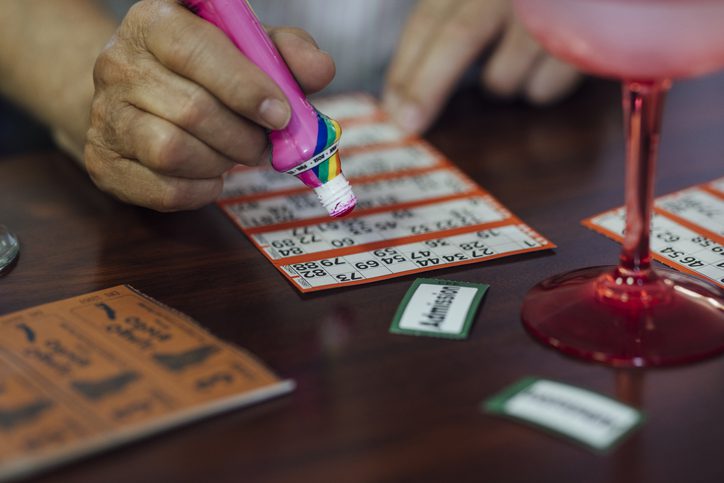Bingo Is the Name of the Game (and the Dog)
You have probably played Bingo a time or two. Indeed, you might even be an avid player of this simple but extremely popular game. There is a good chance, however, that you have not thought about Bingo concerning your mental health. We will get to that in just a moment.
The rules of the game are simple. A caller shouts out a letter (B, I, N, G, or O) and a number (randomized numbers appear in a five-by-five grid below the letters). If you have a match on your card, you mark it off. If you find yourself with five in a row, you shout “BINGO!” and collect your prize. There are plenty of variations, but that’s the basic gist of the game.
The game’s simplicity may be a key part of its popularity. In any event, Bingo is a staple of church basements, casinos, and retirement communities. You can find a quick history of the game in this edition of BetterLife Magazine.
The word “Bingo” is, for whatever reason, appealing to the ear. That is probably why it became the basis for a famous earworm of a song about a farmer and his dog (the dog’s name-o is, of course, Bingo). The appeal of the word makes it a good choice for a mnemonic device—that is a word or phrase that helps you remember an idea. Let’s see how “Bingo” might help you remember some key concepts about your mental health.
B Is for Beneficial
Many people who suspect they might be struggling with a mental health disorder put off doing anything about it. They might be embarrassed, or they might be convinced they can just toughen up and ignore the problem.
But mental health issues, as a rule, do not resolve themselves for the better. So we encourage you to pursue treatment because it is beneficial to your overall wellbeing. That treatment might look like therapy, medication, or—best of all—a combination of the two.
I Is for Interesting
Feelings of boredom, burnout, or loneliness can lead to worsening symptoms of mental health disorders like various kinds of depression. Letting yourself languish in a funk of one kind or another is likely to make things worse over time.
That is why is it important to pursue a hobby or other activity that you truly find interesting. An engaging project or activity gives you the opportunity to relax and recharge while doing something you enjoy. That is a great way to support your mental health.
N Is for New
Here is a truism that seems pretty obvious, but that we often don’t think about: Nothing will change if nothing changes. That is true in lots of areas of our lives—including our mental health journey.
If the current conditions of your life do not support good mental health, it is likely time to make a change. Pursuing a new situation—at work, in your relationships, in your approach to caring for yourself—is not necessarily easy, but it is sometimes necessary.
G Is for Gratitude
When you are struggling with depression or another mental health disorder, it can feel as if nothing in your life is worth celebrating. But that is almost certainly not true.
Taking some time to reflect on what you are grateful for each day is a wonderful way to provide a boost to your mental health. Whether you keep a gratitude journal or take a moment at the beginning or end of your day to reflect, maintaining a spirit of gratitude bolsters the foundation of your mental well-being.
O Is for Opportunity
A mental health disorder can make it feel as though your life is tightly constrained. The depression or anxiety or other issue you are facing can seem like a locked room—a locked room for which you do not have the key.
But you have the opportunity to make changes that can lead you back to a feeling of freedom of possibility. Each of the previous letters points toward those opportunities—to pursue treatment, to follow your interests, to make positive changes, and to lean into feelings of gratitude. When you take advantage of those opportunities, you are working your way toward better mental health.
Good Mental Health is the Best Prize of All
At Johnstown Heights Behavioral Health—located in Johnstown, Colorado—we know that providing treatment for your mental health is no game. That is why you can count on us to employ evidence-based strategies supported by our experience, expertise, and empathy. If you are struggling with depression, anxiety, a disorder centered on trauma, or other mental health challenges, we are ready and able to help. You can reclaim your quality of life by improving your mental health—and that is a prize worth pursuing.







